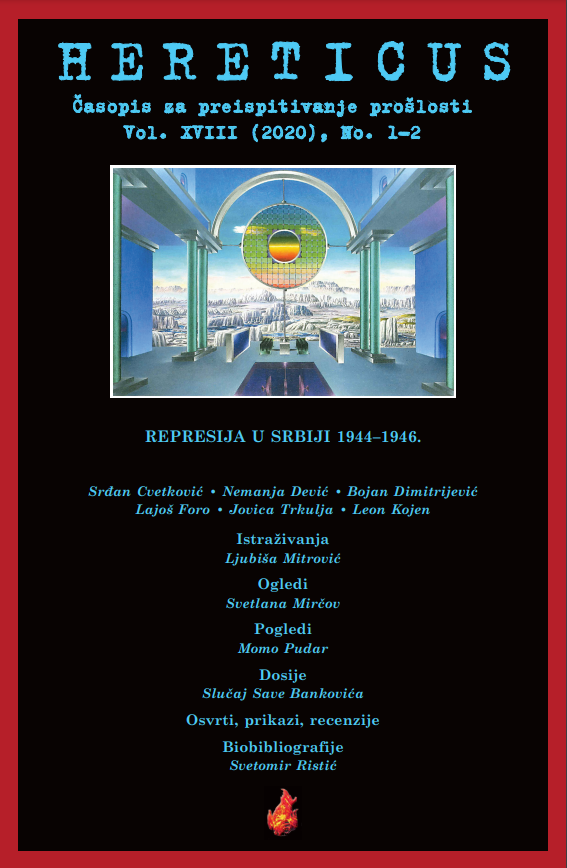REPRESIJA NA PRAVNOM FAKULTETU U BEOGRADU (1941–1946)
REPRESSION AT THE FACULTY OF LAW IN BELGRADE 1941–1946
Author(s): Jovica TrkuljaSubject(s): Local History / Microhistory, Political history, Higher Education , History of Education, WW II and following years (1940 - 1949)
Published by: Centar za unapređivanje pravnih studija
Keywords: Serbia; University of Belgrade; Faculty of Law; professors/teachers; repression; Committee for the Restoration of the University; Court of Honor; rehabilitation of political convicts
Summary/Abstract: The author attempts to explore the mechanisms and forms of the repression carried out at the Faculty of Law of the University of Belgrade in the period 1941–1946 and to shed light on the suffering and persecution of some teachers and lecturers. From 1944 to 1946, the face-off with them took the form of instrumentalizing anti-fascism and punishing collaborations and war criminals using institutional and, to an even greater extent, extra-institutional methods. He focuses on the role of the Committee for the Restoration of the University and the Court of Honor of the University of Belgrade, as well as on the various grounds used to justify the removal of teachers and associates from the Faculty of Law: (1) being proclaimed an „enemy of the people“; (2) being convicted of an offense before the Court of Honor; (3) not being included in the new teaching staff; and (4) being expelled from the Faculty. Along with a handful of collaborators, many teachers and associates of the Faculty of Law in Belgrade were persecuted and sent to prison without a fair trial. The author concludes that the Court of Honor was not established by the University’s relevant organs and failed to judge cases based on the main principles of fair judicial proceedings. Its role was primarily ideological and political, and so many teachers were sentenced for these reasons. Although seventy years have passed since these persecutions of teachers and associates, the University of Belgrade has yet to seriously face this dark side of its past, and the period remains lamentably under-researched. Notable exceptions are the few authors who have investigated these developments at the University of Belgrade, particularly its Faculty of Law, in an attempt to rectify the injustice done to the killed and persecuted teachers and associates.
Journal: HERETICUS - Časopis za preispitivanje prošlosti
- Issue Year: 2020
- Issue No: 1-2
- Page Range: 89-133
- Page Count: 45
- Language: Serbian

